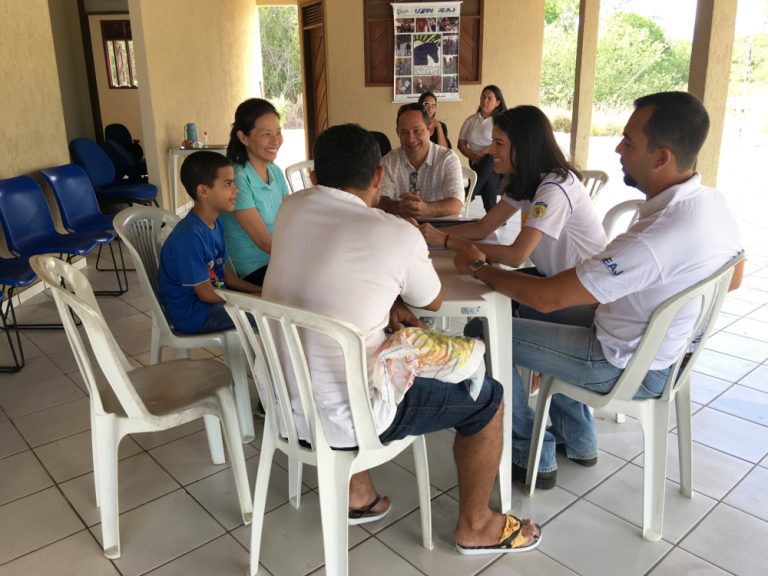Completing a year of activity in January 2018, the Potiguar Riding Therapy achieved an important achievement by offering therapy with horses as a complement to the treatment provided by the Multidisciplinary Autism Spectrum Disorder Care Service (SEMEA), in Macaíba (RN).
Throughout the year, 12 patients, aged between 4 and 11 years, were followed up in this project offered by Anita Garibaldi Health Education and Research Center (CEPS), in partnership with the Agricultural School of Jundiaí (EAJ), from the Federal University of Rio Grande do Norte (UFRN). CEPS' multidisciplinary team, which monitors practitioners with Autism Spectrum Disorder (ASD), highlights the main aspects of evolution in this first year of activities.
According to Samantha Maranhão, neuropsychologist and CEPS multidisciplinary preceptor, in general, all practitioners achieved considerable clinical evolution. The pre- and post-intervention analysis for the year 2017 indicates, for example, that the items social reciprocity, corporal conscience It is gross motor coordination each demonstrated 70% of clinical advances and items acceptance of new routines It is concentration, 60%. Already the skills of autonomy It is self esteem around 40% evolved, each, among the children monitored by the project's professionals.
Practice opportunity for undergraduates and residents
Potiguar Equine Therapy is also a practice scenario for undergraduate students and residents in the health areas. During the meetings, they had the opportunity to acquire desirable knowledge in the context of equine therapy for children with ASD, including: mastery of motor and intellectual skill techniques, as well as horse gait and proper bridging; and understanding of issues that often generate doubts in parents.
Samantha reinforces the importance of offering this opportunity to students in training: “Riding therapy is a modality of therapy assisted by animals that is not very widespread in undergraduate and graduate curricula in the country. In addition to being something different for children undergoing treatment, this scenario is also important for undergraduates and residents, who have the chance to experience the practice of an interprofessional clinical environment”. In 2017, the project received UFRN students from physiotherapy, psychology, medicine, nursing and social work courses.


Autonomy to participate in equestrian competitions
After six months of intervention, two practitioners migrated from the education/re-education modality to the pre-sports modality. In December 2017, 9-year-old Ian Dantas and 11-year-old Miguel Ferreira participated in a competition organized by the North Rio Grande Equestrian Federation, which included students from the Jiqui Country Club (RN) Hípica and guests. The great differential of the competition is the total autonomy in driving the horse. In this context, the auxiliary guide and the therapeutic mediators present in the Potiguar Riding Therapy leave the scene and the practitioners apply specific equestrian exercises.
This process helps in the acquisition of autonomy and the child starts to better understand how much he needs to be involved in the processes he experiences. Samantha Maranhão explains that autonomy and the notion of responsibility result in increased self-esteem which, in turn, directly interferes with the way in which the child relates to the world: initiate and maintain interactions and also noticed a higher level of concentration when carrying out school activities, for example”, celebrates the Potiguar Equotherapy team.

Intertv Cabugi, an affiliate of Rede Globo in Rio Grande do Norte, made a report on Potiguar Equine Therapy in November 2017, which can be seen HERE.
Text: Ariane Mondo / Ascom – ISD
Photos: Ariane Mondo / Ascom – ISD
Communication Office
comunicacao@isd.org.br
(84) 99416-1880
Santos Dumont Institute (ISD)
Social organization that maintains ties with the Ministry of Education (MEC) and whose mission is to promote education for life, forming citizens through integrated teaching, research and extension actions and to contribute to a fairer and more humane transformation of the Brazilian social reality.


















